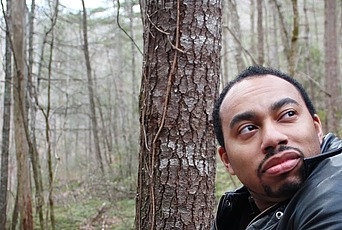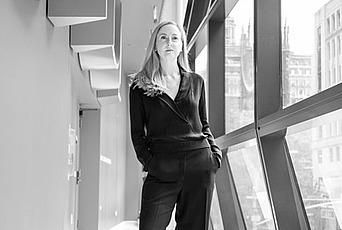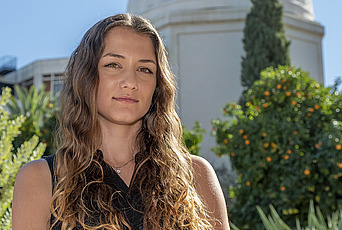Q&A with Karina Urbach
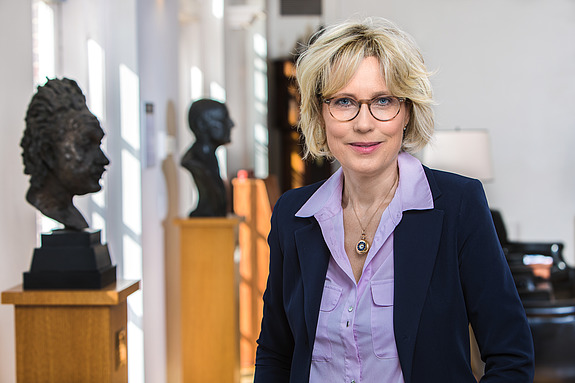
Karina Urbach, Visitor in the School of Historical Studies since 2015, is a German historian with a special interest in the Nazi period (1933–45). She has written several books on nineteenth- and twentieth-century European political and cultural history. Karina is currently researching intelligence sources (Counterintelligence Corps) regarding Central Europe. She is also following the trail of an Austrian refugee from the 1930s onwards.
There is a great debate in Germany because the heirs of Kaiser Wilhelm II are claiming restitution of their property. What is the nature of the debate?
This summer it became known that the Hohenzollern family, Germany’s former royal house, has been in secret negotiations with the German government, claiming restitution payments and the return of paintings and historical objects. According to the law on restitution payments, compensation is excluded where “substantial assistance [erheblicher Vorschub]” to the National Socialist system was given. The German public, politicians, and the media have therefore been asking whether the Hohenzollern family are entitled to restitution. The Green Party has now raised a question in parliament and the debate will take place soon.
How is your research connected with the current political issues?
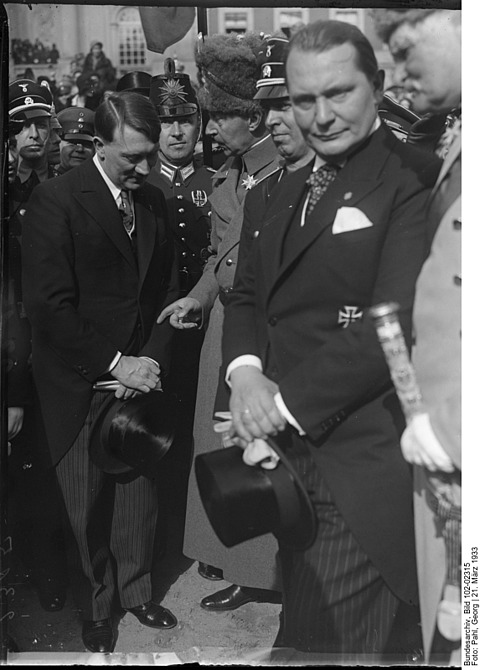
Why is it important for historians to be involved in the debate?
It is what we are trained for. In every war crimes trial, historians have acted as expert witnesses. The Crown Prince was not a war criminal, but to determine his part in Hitler’s rise to power, you need historians. The whole case was first brought to court in 2014, but the detailed, expert reports were kept secret, the case was adjourned, and then secret negotiations started. This is not how such issues should be handled.
What is at stake?
In the last decades, Germany has done a lot to confront its war guilt and learn from its history. However, granting restitution to the descendants of a man like the Crown Prince could set everything back to the Germany of the 1950s. Another more immediate problem is of course that German museums would have to hand over to the Hohenzollern family priceless paintings by Lucas Cranach, Adolph von Menzel, and Claude Vernet. The state museums in Berlin are at risk of losing their best pieces. In London, the Times ran an article asking what would we do if our royals had abdicated 100 years ago and suddenly reappeared demanding famous paintings from our national collections? The answer was, we would say no.
You are planning to organize a panel at IAS on this topic next term. What will be among the points of discussion?
As part of my “Impact of the Past” lecture series, I am planning two panel discussions in 2020. The first one, in February, is on a more general theme. Its title is “Anti-Semitism—Past and Present.” Deborah Lipstadt, Lord Daniel Finkelstein, and Julie Gottlieb will talk about the return of anti-Semitism to the U.S. and Europe. The second panel, in April, will look solely at the Hohenzollern case and its implications. Its title is “Rehabilitating the Past.” Eva Giloi, current Member in the School of Historical Studies, and Thomas Biskup, former Member in the School, along with Stephan Malinowski from the University of Edinburgh, will be among the speakers. It would be wonderful to have a full house for both events!
